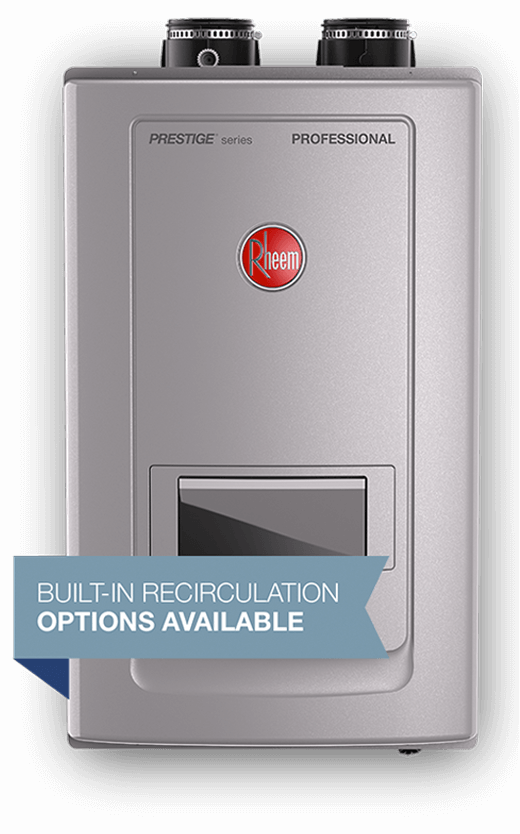The concept of instant, endless hot water has always been a dream for many homeowners. Now, with the advent of sophisticated technology, that dream is a tangible reality, especially when considering a rheem tankless hot water heater. These innovative systems offer more than just convenience; they represent a significant shift towards energy efficiency and space-saving design, promising to revolutionize how we experience hot water in our homes. Imagine never having to worry about running out of hot water during a shower or while running the dishwasher – that’s the promise of a rheem tankless hot water heater.
Understanding Tankless Technology
Traditional hot water tanks constantly heat and store water, leading to energy loss even when hot water isn’t being used. Tankless water heaters, on the other hand, heat water only when it’s needed, eliminating standby heat loss. This on-demand heating process offers several advantages:
- Energy Efficiency: Significant savings on energy bills due to reduced standby heat loss.
- Endless Hot Water: Enjoy continuous hot water without the fear of running out.
- Space Saving: Compact design frees up valuable space compared to bulky tanks.
- Longer Lifespan: Typically last longer than traditional tank water heaters.
Rheem Tankless Models: A Closer Look
Rheem offers a diverse range of tankless water heaters to meet various needs and budgets. From compact electric models ideal for small apartments to powerful gas-fired units capable of supplying hot water to large homes, there’s a Rheem tankless solution for virtually every application. Factors to consider when choosing a Rheem tankless model include:
- Flow Rate: Measure the maximum flow rate (gallons per minute) required for your household.
- Fuel Type: Choose between electric or gas models based on available fuel sources.
- Energy Factor (EF): Compare the EF ratings to determine the most energy-efficient option.
- Budget: Tankless water heaters typically have a higher upfront cost than traditional tanks, but the long-term savings can offset this investment.
Electric vs. Gas Tankless Water Heaters
The choice between electric and gas tankless water heaters depends on several factors, including the availability of gas lines, energy costs, and household hot water demands.
| Feature | Electric Tankless | Gas Tankless |
|---|---|---|
| Installation | Simpler installation; requires proper electrical wiring. | More complex installation; requires gas line connection and venting. |
| Energy Efficiency | Can be very efficient, but electricity costs vary. | Highly efficient, especially with condensing models. |
| Flow Rate | Typically lower flow rates compared to gas models. | Higher flow rates suitable for larger households. |
Maintenance is also a key consideration. While tankless water heaters generally require less maintenance than traditional tanks, regular descaling (removing mineral buildup) is recommended to ensure optimal performance.
Making the switch to a tankless system can be a significant investment, but the benefits in terms of energy savings and convenience are often well worth the initial cost. After careful consideration of your household’s needs and available resources, you may find that the best option is indeed to consider a rheem tankless hot water heater.
Installation costs can vary widely depending on the complexity of the project and local labor rates. Obtaining quotes from multiple qualified plumbers is crucial to ensure a fair price and a professional installation. Remember to factor in any necessary upgrades to your electrical or gas infrastructure, as these can add to the overall cost.
REAL-WORLD BENEFITS AND CONSIDERATIONS
Beyond the technical specifications and energy efficiency ratings, the real-world benefits of a Rheem tankless system are often what truly resonate with homeowners. Imagine a family with teenagers who enjoy long showers – with a tankless system, there’s no more fighting over who gets hot water first. Or consider a vacation home that sits idle for long periods – a tankless system eliminates the need to constantly heat a tank of water, saving energy and money. However, there are also considerations to keep in mind:
– Cold Water Sandwich: Some older tankless models may experience a brief “cold water sandwich” when hot water is first initiated. Newer models have largely addressed this issue.
– Power Outages: Electric tankless water heaters require electricity to operate, so they won’t function during a power outage. Gas models may still function if they have a battery backup.
– Hard Water: Hard water can cause mineral buildup that reduces efficiency and lifespan. Consider installing a water softener to mitigate this issue.
THE FUTURE OF HOT WATER IS HERE
As technology continues to evolve, we can expect to see even more advancements in tankless water heater technology. Smart features, such as remote monitoring and control via smartphone apps, are becoming increasingly common. Furthermore, research and development efforts are focused on improving energy efficiency, reducing installation costs, and enhancing the overall user experience.
Ultimately, selecting the right hot water solution for your home is a personal decision that depends on your individual circumstances and priorities. While traditional tank water heaters still have their place, the advantages of a Rheem tankless system, particularly in terms of energy savings and endless hot water, are becoming increasingly compelling. If you are looking for a reliable and efficient way to heat your water, remember that the **rheem tankless hot water heater** could be the perfect choice for your long-term comfort and convenience.





